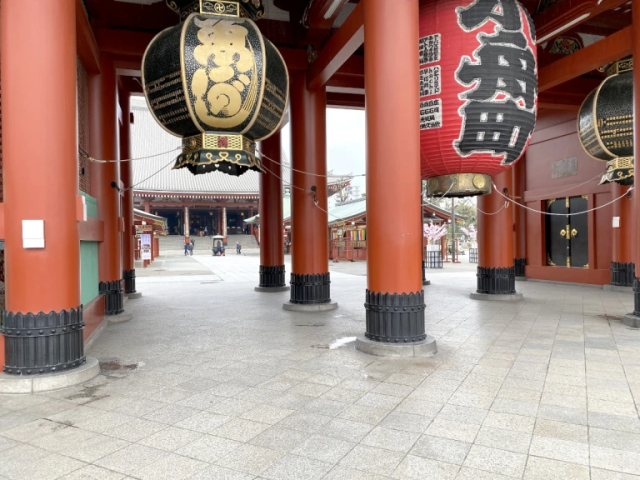
He’s ready to run customers around the empty streets of Asakusa, even though he knows it’s not the safest choice.
Pretty much everyone who comes to Tokyo comes to Asakusa. The neighborhood is home to Sensoji, the city’s largest and most important Buddhist temple, and seven days a week travelers, both domestic and international, flood into the district to get a taste of the atmosphere of old Japan.
▼ Asakusa in mid-February
Well, more accurately, that’s what you’ll see every day there isn’t a highly contagious deadly disease going around.
▼ Asakusa now
With the coronavirus pandemic still ongoing, many people in Tokyo are limiting their non-essential trips out of the house, and international travel concerns and restrictions mean the neighborhood’s number of foreign travelers has also plummeted. While the government has yet to order any businesses closed in Japan, Asakusa is highly dependent on tourist traffic, and with so few visitors, many local shops and restaurants are choosing not to open, turning the district into a veritable ghost town.
By way of comparison, here’s how Nakamisedori, the street that leads to Sensoji, usually looks: packed with people shopping at the souvenir stalls and munching on snacks, like the local-delicacy ningyoyaki cakes, as they make their way to the temple to offer incense and prayers.
And here’s how it looked when our Japanese-language reporter P.K. Sanjun stopped by to check on the area this week.
The emptiness is especially startling because an annual Asakusa tourism surge ordinarily takes place in late Match/early April. With the weather warming up and overseas travelers often timing their entry into Japan so that they can see cherry blossoms during their stay, right now is a critical time of year for local merchants.
However, even with most shops and restaurants closed, P.K. did encounter someone ready to get to work, if only a customer would show up. Because of Asakusa’s traditional atmosphere, rickshaw tours are a popular way to see the neighborhood, and P.K. spoke with one puller about why he was still in uniform and out on the street.
The man told P.K.:
“I’d say the number of visitors [to the neighborhood] is down by about 90 percent. We’re not getting any international travelers, and since the request from the Tokyo metropolitan government for people to stay inside, there’s been a sharp drop in Japanese visitors too.
We rickshaw pullers deal in the service industry and have close contact with our customers, but we should be OK because we work outside…that’s what I keep telling myself. But really, I know we should be voluntarily keeping ourselves off the streets. If I take too much time off from work, though, I won’t be able to buy food to eat, and that’ll kill me even before the coronavirus gets me. Really, I want to stay home and not work, but I can’t.”
With the Japanese government yet to pass any concrete legislation expanding financial aid to those being hit economically by the effects of the coronavirus outbreak, odds are the rickshaw puller P.K. spoke to isn’t the only person, nor his profession the only one, starting to feel the pinch.
Photos ©SoraNews24
● Want to hear about SoraNews24’s latest articles as soon as they’re published? Follow us on Facebook and Twitter!
[ Read in Japanese ]

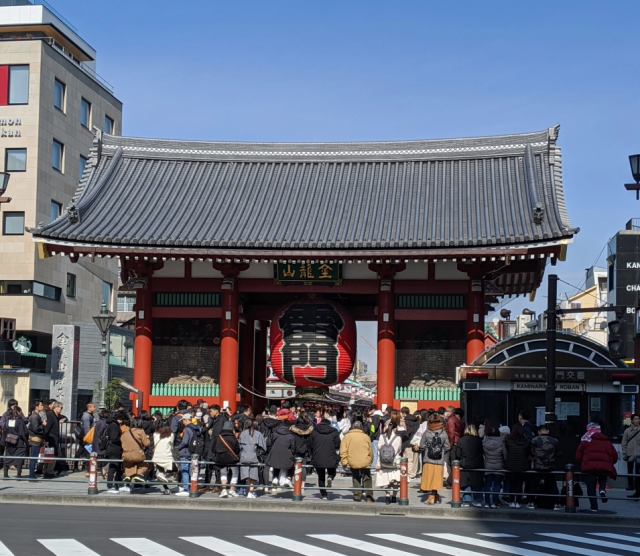
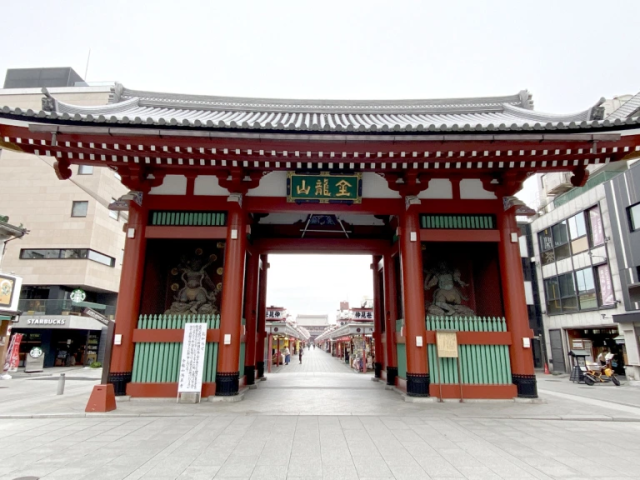
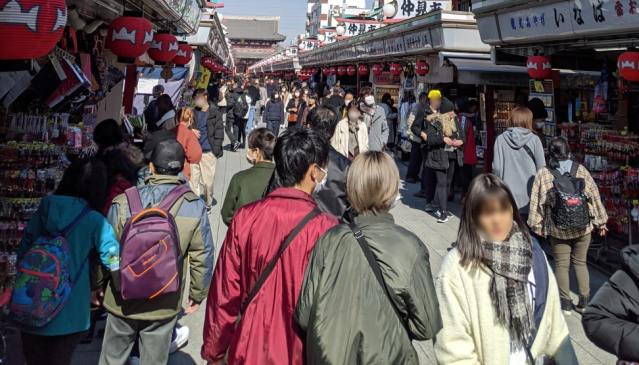
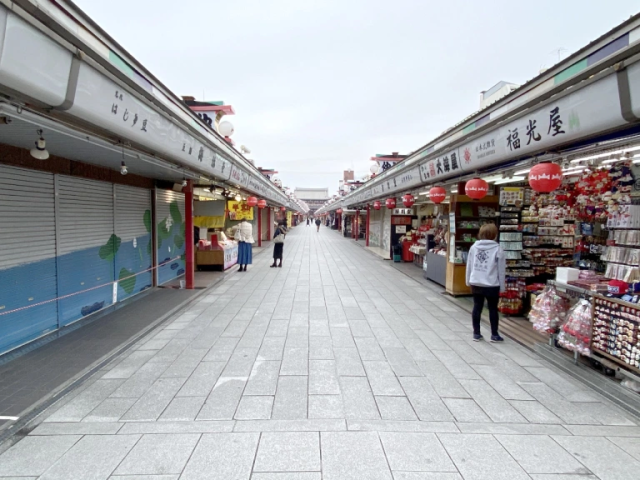
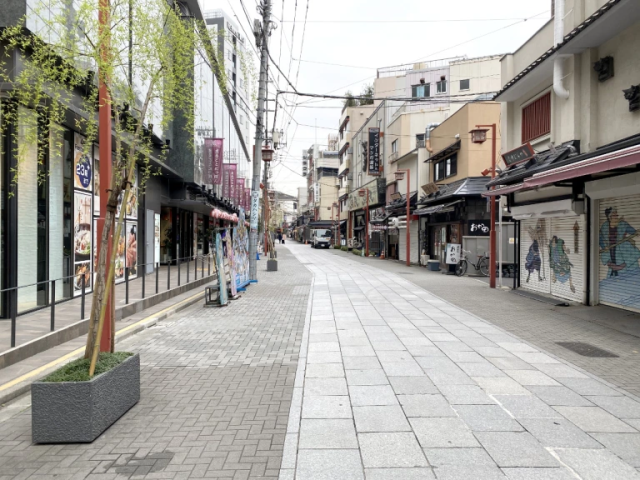
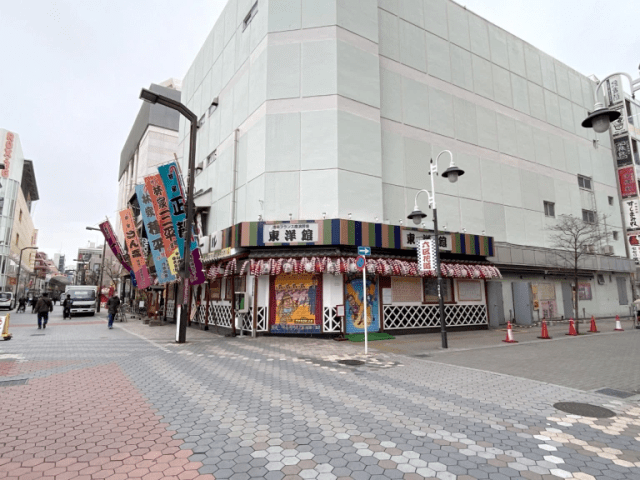
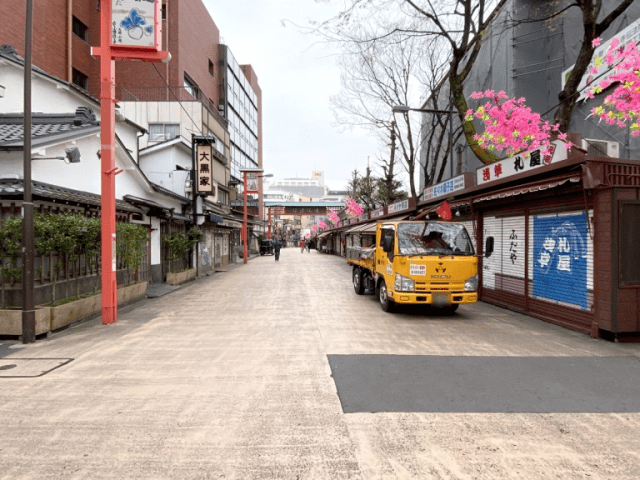
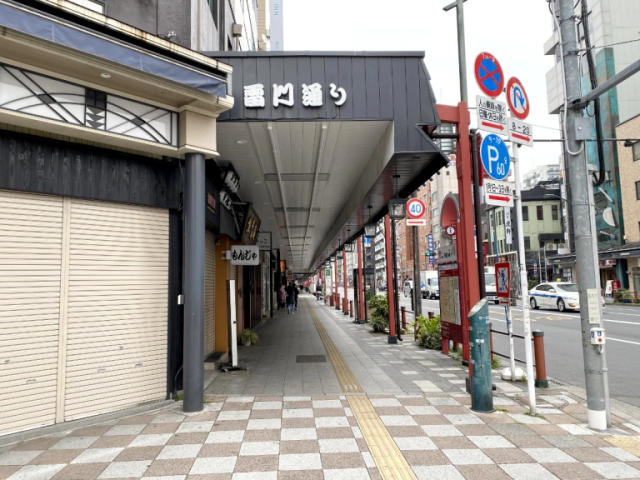
 Why are almost all women you see riding rickshaws in Japan cute? We ask a pro, learn two reasons
Why are almost all women you see riding rickshaws in Japan cute? We ask a pro, learn two reasons Foreign resident of Japan starts work as city’s first-ever non-Japanese rickshaw puller【Photos】
Foreign resident of Japan starts work as city’s first-ever non-Japanese rickshaw puller【Photos】 Empty Akihabara – Tokyo’s otaku district hit hard by coronavirus outbreak【Photos】
Empty Akihabara – Tokyo’s otaku district hit hard by coronavirus outbreak【Photos】 Pokémon GO melds with Tokyo’s traditional neighborhood for Asakusa Routes event, gets thumbs up from us
Pokémon GO melds with Tokyo’s traditional neighborhood for Asakusa Routes event, gets thumbs up from us Pac-Man rickshaw rides available for a limited time around Asakusa’s famous Senso-ji temple
Pac-Man rickshaw rides available for a limited time around Asakusa’s famous Senso-ji temple Tokyo Skytree turns pink for the cherry blossom season
Tokyo Skytree turns pink for the cherry blossom season Yakuzen ramen restaurant in Tokyo is very different to a yakuza ramen restaurant
Yakuzen ramen restaurant in Tokyo is very different to a yakuza ramen restaurant The 10 most annoying things foreign tourists do on Japanese trains, according to locals
The 10 most annoying things foreign tourists do on Japanese trains, according to locals Adorable Totoro acorn key holders come with a special guest hidden inside[Photos]
Adorable Totoro acorn key holders come with a special guest hidden inside[Photos] Shibuya Station’s Hachiko Gate and Yamanote Line stairway locations change next month
Shibuya Station’s Hachiko Gate and Yamanote Line stairway locations change next month Last chance coming up for amazing east Japan for all-you-can-ride Shinkansen-inclusive train pass
Last chance coming up for amazing east Japan for all-you-can-ride Shinkansen-inclusive train pass Oh Boy, That’s Pretty Racist (Part Two): Japanese woman explains why Taiwanese girls suck
Oh Boy, That’s Pretty Racist (Part Two): Japanese woman explains why Taiwanese girls suck Japan’s new difficult-to-drink-from beer glass protects your liver, but it’s a brutal experience
Japan’s new difficult-to-drink-from beer glass protects your liver, but it’s a brutal experience We predict 7-Eleven’s new Zero Cider Triple drink is gonna be the hit drink of 2022【Taste Test】
We predict 7-Eleven’s new Zero Cider Triple drink is gonna be the hit drink of 2022【Taste Test】 Osaka establishes first designated smoking area in Dotonbori canal district to fight “overtourism”
Osaka establishes first designated smoking area in Dotonbori canal district to fight “overtourism” Starbucks Japan releases new sakura goods and drinkware for cherry blossom season 2026
Starbucks Japan releases new sakura goods and drinkware for cherry blossom season 2026 Naruto and Converse team up for new line of shinobi sneakers[Photos]
Naruto and Converse team up for new line of shinobi sneakers[Photos] Is Sapporio’s Snow Festival awesome enough to be worth visiting even if you hate the snow? [Pics]
Is Sapporio’s Snow Festival awesome enough to be worth visiting even if you hate the snow? [Pics] Japan has trams that say “sorry” while they ride around town…but why?
Japan has trams that say “sorry” while they ride around town…but why? Sakura Totoro is here to get spring started early with adorable pouches and plushies
Sakura Totoro is here to get spring started early with adorable pouches and plushies Starbucks Japan unveils new sakura Frappuccino for cherry blossom season 2026
Starbucks Japan unveils new sakura Frappuccino for cherry blossom season 2026 Poop is in full bloom at the Unko Museums for cherry blossom season
Poop is in full bloom at the Unko Museums for cherry blossom season Now is the time to visit one of Tokyo’s best off-the-beaten-path plum blossom gardens
Now is the time to visit one of Tokyo’s best off-the-beaten-path plum blossom gardens Playing Switch 2 games with just one hand is possible thanks to Japanese peripheral maker
Playing Switch 2 games with just one hand is possible thanks to Japanese peripheral maker Japan’s newest Shinkansen has no seats…or passengers [Video]
Japan’s newest Shinkansen has no seats…or passengers [Video] Foreigners accounting for over 80 percent of off-course skiers needing rescue in Japan’s Hokkaido
Foreigners accounting for over 80 percent of off-course skiers needing rescue in Japan’s Hokkaido Super-salty pizza sends six kids to the hospital in Japan, linguistics blamed
Super-salty pizza sends six kids to the hospital in Japan, linguistics blamed Foreign tourists in Japan will get free Shinkansen tickets to promote regional tourism
Foreign tourists in Japan will get free Shinkansen tickets to promote regional tourism Take a trip to Japan’s Dododo Land, the most irritating place on Earth
Take a trip to Japan’s Dododo Land, the most irritating place on Earth Archfiend Hello Kitty appears as Sanrio launches new team-up with Yu-Gi-Oh【Pics】
Archfiend Hello Kitty appears as Sanrio launches new team-up with Yu-Gi-Oh【Pics】 Survey asks foreign tourists what bothered them in Japan, more than half gave same answer
Survey asks foreign tourists what bothered them in Japan, more than half gave same answer Japan’s human washing machines will go on sale to general public, demos to be held in Tokyo
Japan’s human washing machines will go on sale to general public, demos to be held in Tokyo Starbucks Japan releases new drinkware and goods for Valentine’s Day
Starbucks Japan releases new drinkware and goods for Valentine’s Day We deeply regret going into this tunnel on our walk in the mountains of Japan
We deeply regret going into this tunnel on our walk in the mountains of Japan Studio Ghibli releases Kodama forest spirits from Princess Mononoke to light up your home
Studio Ghibli releases Kodama forest spirits from Princess Mononoke to light up your home Major Japanese hotel chain says reservations via overseas booking sites may not be valid
Major Japanese hotel chain says reservations via overseas booking sites may not be valid Put sesame oil in your coffee? Japanese maker says it’s the best way to start your day【Taste test】
Put sesame oil in your coffee? Japanese maker says it’s the best way to start your day【Taste test】 No more using real katana for tourism activities, Japan’s National Police Agency says
No more using real katana for tourism activities, Japan’s National Police Agency says Handsome Japanese rickshaw drivers get hot and steamy in their new music video
Handsome Japanese rickshaw drivers get hot and steamy in their new music video How to dress for summer in Japan: Tips from a rickshaw driver in Asakusa
How to dress for summer in Japan: Tips from a rickshaw driver in Asakusa Hello Kitty rickshaw tours are coming to show you Tokyo in Sanrio style!
Hello Kitty rickshaw tours are coming to show you Tokyo in Sanrio style! Why Sensoji temple in Asakusa is better at night
Why Sensoji temple in Asakusa is better at night Shakey’s Japan releases Mojo Potato recipe to keep home cooks happy during coronavirus outbreak
Shakey’s Japan releases Mojo Potato recipe to keep home cooks happy during coronavirus outbreak Asakusa’s Yoi no Yoi bar crawl is one of Tokyo’s best local nights out
Asakusa’s Yoi no Yoi bar crawl is one of Tokyo’s best local nights out Harajuku looks eerily quiet during the coronavirus outbreak 【Photos】
Harajuku looks eerily quiet during the coronavirus outbreak 【Photos】 Is China’s don’t-go-to-Japan warning affecting tourist crowds in Tokyo’s Asakusa neighborhood?
Is China’s don’t-go-to-Japan warning affecting tourist crowds in Tokyo’s Asakusa neighborhood? Kyoto starts new “Empty” tourism campaign to attract tourists during coronavirus outbreak
Kyoto starts new “Empty” tourism campaign to attract tourists during coronavirus outbreak Sensoji temple at Asakusa gets a new giant lantern
Sensoji temple at Asakusa gets a new giant lantern Tokyo tourist sites look eerily quiet without tourists 【Videos】
Tokyo tourist sites look eerily quiet without tourists 【Videos】 Japanese company tells worker he probably doesn’t have coronavirus, to come to work with a fever
Japanese company tells worker he probably doesn’t have coronavirus, to come to work with a fever What state of emergency? People in Tokyo defy requests to stay home during coronavirus outbreak
What state of emergency? People in Tokyo defy requests to stay home during coronavirus outbreak Ueno Park looks eerily deserted in the midst of the coronavirus 【Photos】
Ueno Park looks eerily deserted in the midst of the coronavirus 【Photos】 What it’s like to rent a kimono and stroll around Sensoji temple in Asakusa for an afternoon
What it’s like to rent a kimono and stroll around Sensoji temple in Asakusa for an afternoon